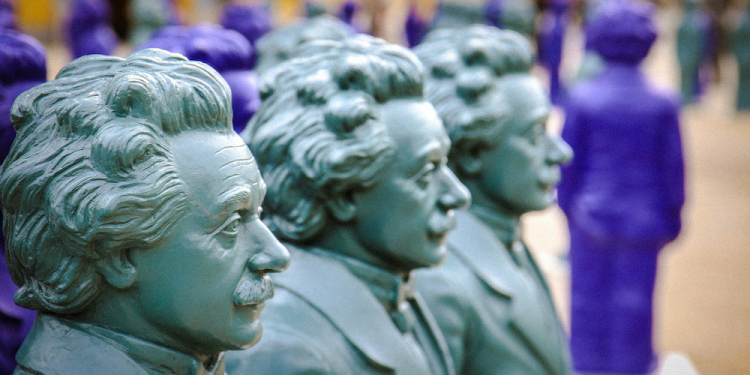The FINANCIAL — What influence does the source of information have on its credibility? Scientists have more authority than spiritual sources, both among religious and non-religious people. This is apparent from a large-scale experiment conducted by UvA researchers working in an international team. In the experiment, the researchers presented nonsense claims made by both a scientist and a spiritual guru to more than 10,000 subjects from 24 countries, according to University of Amsterdam.
They describe the universal effect found, which they call the Einstein effect, in a publication that appeared on Monday, 7 February, in the scientific journal ‘Nature Human Behavior’.
The corona crisis has recently brought the subject of the credibility of science to the fore. Does keeping 1.5 meters apart really work? Are vaccinations safe? Does wearing a face mask help? In many cases, the answers to such questions ultimately boil down to who we trust most and consider the most credible authority. Should we take the word of an anti-vaxxer or listen to the national health authorities to guide our beliefs and behaviour regarding the virus? ‘In our research, we looked at the influence that the source of the information has on its credibility, apart from the content of the information itself.
We did that with a simple experiment using nonsense claims. They were not about corona, but our findings are also very relevant to the debates around corona,’ says UvA psychologist Suzanne Hoogeveen, who led the study.
Meaningless, but profound-sounding
The 10,195 participants in the experiment were presented with two meaningless but profound-sounding statements: ‘We are called to explore the cosmos itself as an interface between faith and empathy. We must learn how to lead authentic lifes in the face of delusion. It is in refining that we are guided.’ and ‘Yes, it is possible to exterminate the things that can confront us, but not without hope on our side. Turbulence is born in the gap when transformation has been excluded. It is in evolving that we are re-energized.’ One claim was attributed to a scientist and the other to a spiritual guru. Participants were then asked to indicate on a 7-point scale to what extent they found the claims credible.
Cross-cultural differences
Even the most religious subjects saw the scientist’s claim as more credible than that of the spiritual guru, although the effect was less strong in that group. They found the spiritual guru’s words relatively more credible than the non-religious participants in the experiment.
The effect found was universal; at the same time, there were also differences between countries. For instance, the Dutch participants were the most sceptical about the claims across the board. The difference between credibility of the scientist and the guru was greatest in Turkey and smallest in India, China and Japan. ‘It could be that the relatively smaller effect in Southeast Asia is because the spiritual guru, as presented in the study, is more closely aligned with Eastern belief systems than with the more Western Christian traditions,’ explains Hoogeveen. ‘However, based on our data, we cannot make firm statements about this.’
‘Our findings suggest that regardless of one’s worldview, science is seen worldwide as a powerful indicator of the reliability of information. In these times when there is a lot of talk about scepticism with regard to, for example, climate change and vaccinations, that is hopefully reassuring,’ says Hoogeveen.
Publicatiegegevens
Suzanne Hoogeveen, Julia Haaf, Joseph Bulbulia, Robert Ross, Ryan McKay, Sacha Altay, Theiss Bendixen, Renatas Berniünas, Arik Cheshin, Claudio Gentili, Raluca Georgescu, Will Gervais, Kristin Hagel, Christopher Kavanagh, Neil Levy, Alejandra Neely, Lin Qiu, André Rabelo, Jonathan Ramsay, Bastiaan Rutjens, Hugh Turpin, Filip Uzarevic, Robin Wuyts, Dimitris Xygalatas and Michiel van Elk: ‘The Einstein effect provides global evidence for scientific source credibility effects and the influence of religiosity’, in: Nature Human Behaviour































Discussion about this post